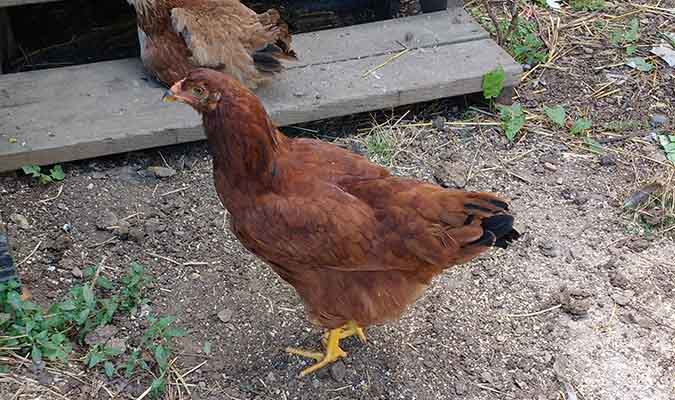This article was originally published on the Grow Network.
There are four articles in this series on different strategies for cold-weather chicken care. Below, we explore the 13 best chicken breeds for cold climates. To read the other articles in the series, click on the links below:
- “Cold-Weather Chicken Care: 11 Quick Ideas to Improve Chicken Comfort”
- “How to Prevent (and Treat) Frostbite in Chickens”
- “How to Keep Chicken Water From Freezing”
_______________________
Here on our homestead in North Carolina, we had some crazy-cold weather this past winter. In fact, some of our nights were so cold that it had me rethinking my chicken breed choices.
Luckily, most of my ladies are pretty hardy, to begin with. But my lightweight, giant-combed Lakenvelder rooster and my dear, sweet rooster Rasputin had me a bit worried. And as I discovered, when it came to Rasputin, I was right to be worried.
You can learn more about the plight of my poor frostbitten chicken, Rasputin, here.
Now, read on for some recommendations to help you choose chicken breeds that will come through the cold with flying colors!
When picking chickens for cold weather, there are three simple things to keep in mind: weight class, feathering, and comb size.
Let’s look at weight class first.
Weight Class
Choose chicken breeds that have a fair amount of fat. Heavier birds tend to have more cold tolerance than lean birds. In most climates, dual-purpose breeds that are good for egg and meat production are usually sufficient for cold temperatures just above single digits, and maybe even a little below, on the Fahrenheit scale.
Consider these breeds for winter-friendly fattiness:
- Plymouth Barred Rocks
- Black Australorps
- Rhode Island Reds
- Delawares
- Buff Orpingtons
- New Hampshire Reds
If you live in conditions where you also have warm summers to contend with, these breeds tend to have decent heat tolerance as long as they are given sufficient access to shade and lots of fresh, cool water.
Feathering
For even more winter protection, choose chicken breeds that have extra-heavy feathering. The feathering gives a few more degrees’ worth of cold tolerance. However, in some conditions, feathery feet may actually be more at risk for frostbite if wet feathers ice over. So, in extreme conditions, take measures to keep your chicken’s feet feathers dry.
Consider these breeds for extra feathers:
- Cochins
- Favorelles
- Brahmas
Comb Size
One of the biggest risks to chickens in cold weather is frostbite on their combs. In warmer temps, combs are actually a cooling device that helps regulate the rest of a chicken’s body temperature. This is why roosters, who often have more fat and more feathering, tend to have larger combs than hens. (Well, that, and because those great big combs are like flashing neon signs of virility and masculinity that help attract the beautiful ladies.)
Unfortunately, in wet, windy, and icy conditions, large combs are a liability. They are more prone to losing circulation from the cold and becoming frostbitten.
Choosing chickens with compact combs, such as pea or rose combs, can cut down on the risk of frostbite. Also, paying special attention to the condition of larger rooster combs in winter is important.

Consider these breeds for compact combs:
- Buckeyes
- Dominiques
- Wyandottes
- White Dorkings (Note: The Dorking breed may have either single or rose combs. If you are looking for cold-hardy combs, choose the White Dorking with a rose comb.)
The really wonderful things about all of the cold-hardy breeds above is that they are great egg layers, excellent backyard chickens, and happen to be beautiful to boot! So, you don’t have to compromise chicken cuteness, productivity, and good disposition, to also get great all-winter birds.
Regardless of which breed you choose, if you live in areas with potential cold conditions, you want to make sure you give your chickens a coop that offers sufficient protection from the elements, while also being well ventilated.
Additionally, you want to be prepared to offer your chickens some emergency cold-condition remedies if you have weather that’s more extreme than normal (as many of us did this past winter). You can read more about some easy ideas for increasing chicken comfort in winter here.
Also, remember the lessons learned from Rasputin, the frostbitten chicken. And make sure you have a plan for how to prevent and treat frostbite.
Check out the next installment of our Cold-Weather Chicken Care series to learn about methods for keeping water from freezing in the coop. You can also check out these general tips on winter livestock watering for inspiration:



